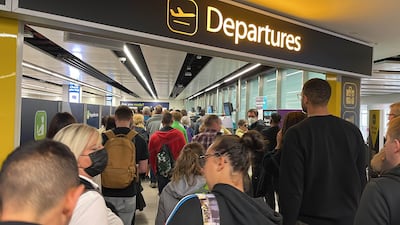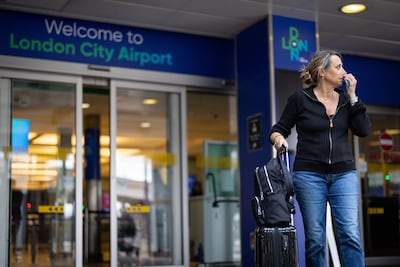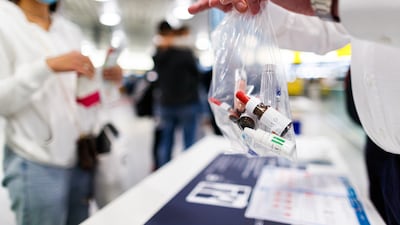The UK's largest airports are on course to miss a June deadline to install new scanners that would enable passengers to carry up to two litres of liquid in their hand luggage.
London airports Heathrow, Gatwick and Stansted, as well as Manchester, are all set to miss the deadline set by the UK's Department of Transport (DfT) to have the new more-powerful machines up and running in time for the summer travel season.
Without the new technology, passengers will still have to limit any liquids they want to carry on board to 100ml containers and place those in a transparent plastic bag.
The new scanners also allow passengers to pass through security checks without having to remove laptops from bags.
As some security lanes at the big airports will have the new equipment but others will not, passengers will have to stick to the existing rules regardless of the lane in which they find themselves.

Confusion for passengers?
The consumer group, Which? predicts the ensuing confusion will lead to delays in moving passengers efficiently through security.
“Airports falling behind on the June deadline for installing the new security scanners could create a lot of confusion for travellers about what the rules are for liquids and removing electronics at different UK airports, leading to more delays,” said Rory Boland, Which? travel editor.
“Over the past few years, certain airports have struggled with delays and keeping up with demand at peak holiday times.
“Airports must ensure they are fully staffed ahead of peak travel periods this year and clearly communicate with travellers about any changes to their security systems and rules to avoid unnecessary disruption.”
Gatwick said it had made “significant progress” in installing the new scanners at the airport's two terminals.
“We currently plan to have completed the major logistical operation required to install the remaining scanners in Q1 2025, after the busy summer peak period has concluded,” an official said.
Meanwhile, the Manchester Airports Group (MAG), which operates Manchester, Stansted and East Midlands airports, said it was “rolling out the new technology lane-by-lane” at its three hubs, with “several new lanes already in operation”.
A representative for MAG said the new scanners will be in place on a “large number of our security lanes by June 2024, with the full completion of the programme expected the following year”.
The scanners use CT X-ray technology to provide 3D images and are already introduced out at Teesside and London City airports, which are smaller than Heathrow, Gatwick, Stansted and Manchester. Heathrow has 146 security lanes in which to change over the scanning equipment, while some of the smaller airports have only 10.

Potential regulatory action
Technically, the big airports could face fines if they miss the June deadline.
However, there was some ambiguity in the original announcement.
In December 2022, the DfT gave the major UK airports until June 2024 to make the new scanner upgrades, but Transport Minister Mark Harper said the installation process “won’t happen straight away” and would take “two years to be fully implemented”.
As such, the large airports do not expect to incur fines as a result of missing the deadline.
An official from the DfT told The National it “wouldn’t rule out taking a range of potential regulatory actions”.


